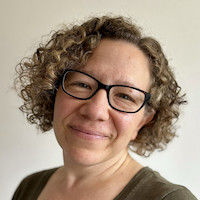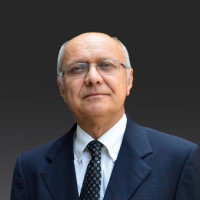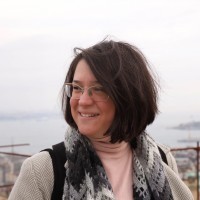Dergi Kurulları
Editor in Chief
Ilgi Toprak; B.Arch,M.Arch,PhD. Independent researcher, Washington DC. District of Columbia, USA. Editor of Journal of Design Studio.
She received her B.Arch from Istanbul Technical University, Faculty of Architecture, Department of Architecture (2009). She earned her MSc in architectural design from Istanbul Technical University
(2012). She continued her MSc studies in Ecole Nationale Superieure d’Architecture de Lyon on Architectural Design and Computing as Erasmus exchange student in between 2010-2011. She holds a
PhD from Istanbul Technical University with a dissertation entitled “Temporality and Spatiality of Syntactic and Semantic Patterns in Urban Heterotopias” (2018).
She worked at Istanbul Technical University, Faculty of Architecture, Department of Architecture as research and teaching assistant in between 2010 – 2016, at TU Delft as guest researcher in between
September 2015 and August 2016, and as assistant professor at Ayvansaray University, Faculty of Fine Arts, Design and Architecture, Department of Interior Architecture in between 2018-2020. She
directed graduate level urban theory courses and undergraduate level architectural design, interior design, basic design studios and technical drawing and CAAD courses. Her research fields are
architectural design, urban studies, neighbourhood change, cultural diversity and space syntax. She had numerous journal articles and papers published in proceedings. She currently works as the editor and editorial board member of “Journal of Design Studio” starting from 2019.
Editorial Board
Ahsen Özsoy is currently professor at Işık university, Faculty of Arts, Design and Architecture, Department of Architecture. Ahsen Özsoy studied architecture at Istanbul Technical University (ITU). She completed her PhD (1983) at ITU Faculty of Architecture, received full professorship in 1995. She has conducted architectural design courses, and theoretical courses such as housing research methodologies, psychology and architecture, housing phenomenon. Her research studies and publications have focused on topics of housing quality; modernity and housing; squatter settlements, urban transformation and housing design; earthquake, housing and woman's role; man-environment studies and architectural education, creative city-creative university relations. She has been responsible for the design and interior design of educational and residential projects and has received National Architectural Awards of Turkish Chamber of Architects (in 2010 and 2014). She has served as Director of Institute of Social Sciences and Vice Rector of ITU. She is the President of the Association for Architecture Education (mimED).
Alessandro Camiz graduated (BArch+MArch) in Architecture at “Sapienza” University (Rome, 1999). Before graduating he cooperated with Sartogo Architetti Associati for the New Italian Embassy (Washington DC) and the Church of Jesus’ Holy Face (Rome). In 2007, he discussed his doctoral thesis on “History of medieval town planning of Ravenna” (Sapienza), and therein attended Post-Doctoral studies until 2014. He taught at the School of Architecture of University of Miami (Rome programme) and at the Faculty of Architecture, Design and Fine Arts of Girne American University (Cyprus), where he directed until 2018 the International Centre for Heritage Studies (ICHS) and the Department of Interior Architecture. He is member of ICOMOS-Italy, and secretary general of the Cyprus Network for Urban Morphology (CyNUM). He worked as associate professor and director of the Laboratory of Dynamic Research on Urban Morphology (DRUM) at Özyeğin University, Istanbul. He is currently an associate professor at Università degli Studi "G. d'Annunzio" Chieti – Pescara , Italy. His main research interests are in architectural design, urban morphology and advanced technologies for conservation and enhancement of architectural heritage.
Aslı Kanan is an Assistant Professor at Istanbul Technical University (ITU), Faculty of Architecture. She received her PhD degree in Architectural Design from ITU, and got the Best Dissertation Award for mathematically predicting spatial usage in openplanned buildings. She teaches soft computing methods including fuzzy logic and evolutionary algorithms in Architectural Design Computing Graduate Program. She is conducting interdisciplinary AI projects on the basis of visual arts, design and machine learning. She was a visiting researcher at CASA-UCL, UK and the University of
Newcastle, AU in 2012-2013. She is now advisor to the Rector for Projects and Research at ITU North Cyprus campus.

Avi Friedman began his studies at the Politecnico di Milano in Italy, received his Bachelor of Architecture from the Technion – Israel Institute of Technology in 1980 (first in class/cum laude), his Master of Architecture from McGill University and his Doctorate in 1987 from Université de Montréal. In 1988 he co-founded the Affordable Homes Program at the McGill School of Architecture, where he is a Professor. He is also an Honorary Professor in Lancaster University in the U.K. Dr. Friedman’s research interests focus on factors which influence the design and implementation of affordable and sustainable building practices at the unit and community levels, including market acceptance, construction, and resource efficiency. For his research he was awarded the Progressive Architecture Research Award, the J.- Armand-Bombardier Prize for Technological Innovation, and the Manning Innovation Award of Distinction. Avi Friedman has published extensively in both academic and trade publications. He has authored 23 books as well as peer-reviewed articles on subjects ranging from prefabrication and construction technology to suburban planning and space management, for academic journals. He has been invited to address international meetings in most of which he was a keynote speaker. Dr. Friedman is a member of the editorial board of architectural journals and authored research monographs and articles in trade publications in the US and Canada. He is also a columnist for several media outlets. Avi Friedman has designed several housing prototypes which were built as full-scale demonstration projects and were then constructed by homebuilders around the world. The Grow Home (co- designed with Witold Rybczynski), a narrow-front rowhouse, received immense media attention and has since been built in communities across North America and Europe. The Next Home, also the subject of much positive media scrutiny, was incorporated into the design of communities in Canada and the U.K. La Casa a la Carta, presented in Mexico, was designed specifically for the developing world. Dr. Friedman’s design work and projects have been cited in many books and have been covered extensively: on TV shows such as Good Morning America, Dream Builders and Stewart Brand’s How Buildings Learn (British Broadcasting Corporation), in magazines such as Popular Science, Architecture and Home, and in newspapers including The New York Times, Los Angeles Times and San Francisco Examiner. Avi Friedman has been invited to speak on over 300 a occasions at meetings of government officials, development authorities, university professors and students, homebuilders, architects and planners in locations as diverse as Dalian, Guadalajara, Prague, Singapore, Berlin and Melbourne. He has received awards for his design and teaching, including the American Institute of Architects Education Honors, the Association of Collegiate Schools of Architecture Collaborative Practice Award, prestigious Creative Achievement Award, the World Habitat Award and the Lifetime Achievement Award from Sustainable Buildings Canada. Avi Friedman is the President of Avi Friedman Consultants, Inc., a design firm with a focus on affordable and sustainable residential environments. Since 1981, he has designed single-family dwellings, affordable and sustainable communities, undertook urban renewal of towns, master planning of cities and conversion of industrial buildings into residences. His list of clients includes governments, cities and private sector enterprises. Dr. Friedman served as a member of many boards and committees in government and trade, including the National Advisory Council on Energy Efficiency, and the National Housing Research Committee of Canada. He has also served on the juries of many design competitions. In the year 2000 the international design magazine
Wallpaper included Avi Friedman in its list of 10 people “most likely to change the way we live,” along with Ingvar Kamprad, founder of IKEA, and Sven Mattison, inventor of the Bluetooth computer chip. In the year 2004 he was referred to by Robert Scally, host of the television series The Innovators, as “the most influential housing innovator in the world.”
Prof. Dr. Banu Manav received her bachelor’s degree in 1995 from Bilkent University, Faculty of Fine Arts, Design and Architecture, Department of Interior Architecture and Environmental Design. She
completed her post graduate studies at the same university in 1997 with her thesis titled "Effects of Different Lighting Arrangements on Space Perception". She graduated from İstanbul Technical
University in 2005, receiving a PhD Degree in Department of Architecture Construction Technology Program, completing her thesis titled ‘The Effect of Luminance, Glare Difference and Colors’ Temperature on Visual Comfort Conditions: A Model Study'.
Prof. Manav, whose main fields of research are lighting systems design, space perception, light and color, light and health, lighting quality, design parameters for user comfort, has 10 research articles
published within the scope of SCI (science citation index), 30 research articles published in journals scanned in field indexes, 85 scientific studies include papers presented and published in domestic and international congresses has edited three congress books, written chapters in 2 books, made presentations at seminars to which she was invited in Turkey and abroad and given professional
interviews. Prof. Manav, whose publications in the WEB of Science database have been cited 484 times (h index 9; i10 index 7), has assumed various administrative tasks, duties in committees and commissions, and pursues memberships in scientific and professional organizations. She has acted as a member and treasurer in the 6th, 7th, and 8th term Executive Boards of Turkish National Committee of Illumination and was the Secretary General in the 9th Term. Her works have been exhibited in national architectural competitions as well as international product design competitions. Also being the winner of TÜBİTAK Incentive Awards, Prof. Dr. Manav has supervised/has been supervising postgraduate theses that have been completed and are ongoing. She has also actively participated in the secretariat/organization and scientific committees of more than 30 national/ international congresses, as well as competition juries; she has worked as an instructor in certification programs on lighting.

Beyza Şat specializes in landscape ecology, landscape analysis, zoning of conservation areas, plant compositions, and determining hotspots in natural lands. Dr. Şat graduated at the top of her class from Istanbul University, Forestry Faculty, Landscape Architecture Department in 1999 with a B.Sc. She subsequently obtained her M.Sc. in 2002 and Ph.D. in 2009 from the Science Institute of Istanbul University. Her Ph.D. thesis, titled 'Landscape Analysis for Ecological Planning: A Case Study of Kazdagi National Park,' proposed zoning plans for Kazdagi National Park based on landscape analysis results, aiming to balance usage and conservation.
After a brief stint in a large construction firm's landscape architecture department, she served as a research assistant at Istanbul University, Forestry Faculty, Landscape Architecture Department from 2000 to 2009. Her experience includes managing projects, conducting research studies, writing essays and articles, and participating in advisory boards for establishing arboretums, botanical gardens, and organizing international and national congresses and seminars.
Dr. Şat has over 20 years of teaching experience in landscape design and planning, landscape ecology, plant materials, and planting design at both private and public universities. In 2014, she was a visiting scholar at Toledo University, Environmental Sciences Department, and received the visiting faculty award for her proposal 'The Relationship between Environmental Protection Awareness and Plant Identification in Urban Parks.' She is a professional member of IALE (International Association of Landscape Ecology) and IUFRO (International Union of Forest Research Organizations). Since 2013, Dr. Şat has been affiliated with the Faculty of Architecture and Design at Ozyegin University.
Research interests: Landscape ecology, Landscape analysis, Plant compositions, Zoning of conservation areas.
Dr. Yorgancıoğlu obtained her B.Arch. from Yıldız Technical University, Department of Architecture in 2000, M. Arch. in Architecture from Middle East Technical University in 2004, and Ph.D. in Architecture from Middle East Technical University in 2010. She worked as research student at the Unit for Strategy Development in Education and Research, of the Research and Implementation Centre for Built Environment and Design (RICBED) of METU Faculty of Architecture between 2006-2010. After completing her Ph.D., she joined İstanbul Kemerburgaz University, Department of Architecture in 2011 where she coordinated the establishment of the Department as Chairperson and worked until 2017. Dr. Yorgancıoğlu conducted research studies at Queen’s University of Belfast, Center for Educational Development (CED) as an invited researcher in 2017. Her areas of specialty are in the fields of theory and research in architecture, architectural design, architectural education, architecturephenomenology relationality, learning space design, scholarship of teaching and learning in higher education, architecture and children studies. She is currently working in Department of Architecture, Faculty of Architecture and Design at Özyeğin University.
As a qualified architect and academic, Jolanda Morkel employs her design skills to imagine and implement designs for inspirational and inclusive experiences and spaces, and through her published research, she explores learning design, design thinking, inclusive design, and flexible and hybrid educational practices.
Jolanda Morkel is the Head of Instructional Design at STADIO Higher Education. She has over 25 years of experience in Higher Education, including teaching, assessment, curriculation, internationalisation, academic management, recognition of prior learning and work-integrated learning, coordination, staff development, quality assurance, and learning design. During a 20-year academic career at the Cape Peninsula University of Technology, Cape Town, South Africa, she designed, coordinated, and facilitated various transformative learning and teaching interventions employing innovative learning technologies. These blended and flexible student-centered learning models were designed to serve culturally diverse, non-traditional, and working students to promote access, diversity, and inclusion in Higher Education.
Jolanda regularly publishes, presents at conferences, and facilitates workshops, locally and abroad, on studio-based learning, flexible, blended, and online learning, technology-mediated and work-integrated learning experiences, learning design, and design-thinking for staff development.
Müge Belek Fialho Teixeira is a creative maker and transdisciplinary designer, specialised in advanced manufacturing, digital fabrication, and parametric design. In her career, she has worked with prominent architectural firms such as Zaha Hadid Architects, taught in several institutions including Queensland University of Technology (QUT), Istanbul Technical University (ITU) and AA Visiting Schools, published articles in peer reviewed journals, gave interviews, and presented in many international conferences, biennales, and exhibitions. She has also been awarded in multiple competitions and events on the future of architecture and the use of novel digital technologies.
Currently, she is Co-Leading the Designing Socio-Technical Robotic Systems program of research at the ARC Australian Cobotics Centre, she is a Design Lead in ARM Hub (Advanced Robotics Manufacturing Hub) and an Associate Professor in QUT Faculty of Engineering, Interior Architecture. She was a Chief Investigator and a post-doctoral researcher at QUT in Design Robotics Project funded by IMCRC (Innovative Manufacturing Corporate Research Centre), that partnered with RMIT and UAP. She holds a BSc. in Architecture, a MSc. on “Collaborative Design Studio Environments” from Istanbul Technical University (ITU), and a MArch from Architectural Association School of Architecture Design Research Laboratory (AADRL). She holds a PhD focused on Trans-Architectural Design Paradigm, during which she studied for two years with Marcos Novak in University of California Santa Barbara, Translab. She is also the cofounder of [f]FLAT Architectures, a studio that researches and develops architectural and media art works.
As a leader and award-winning researcher in interior design discipline, Muge’s approach is technology-driven transdisciplinary design thinker and maker, utilizing computational design and advanced manufacturing technologies. Her inter/nationally recognized practice-led research is the future of interior design in a technology embedded and enabled sustainable world. Her key research achievements to date, informed and strengthened by inter/national collaboration and in partnership with industry and end-users include adoption of advanced manufacturing for SMEs, experimental investigation of digital fabrication and circular materials using collaborative robots, and AR VR integration in Architecture, and built environment by creating digital twins for fabrication processes.
Thomas Mical has been teaching and researching globally on modern and hypermodern theories of architecture and urbanism over a long career in diverse international architecture programs. He has an M.Arch. from Harvard GSD on sci-fi urbanism and a Ph.D. from Georgia Tech in architectural theory, philosophy, and art history. He has taught 50 design studios and has been a tenured professor in the US, Canada, Australia, and New Zealand. He has held fellowships at the Architectural Association (UK), London School of Economics (UK), and DAAD and Fulbright (Germany). He was in the NEH Summer Institute on modernity in Delhi in 2011, was with the Future Institute in 2012, and has published in Sarai and other journals globally. His research in architectural theory examines how concepts are formed, transformed, and disperse into architecture and the wider sensorium. His design research examines the range of meanings and senses forming the complexity of conceived, perceived, and lived spaces. In Delhi he will be researching with global partners aspects of urban prototyping for high-density urbanism and how this can transform everyday life. His recurring theoretical sources include Felix Guattari and Henri Lefebvre. His recent PhD students have examined topics including Spatial Alterity in Beirut, Decolonizing Textile Design in Mexico, and Cognitive Capitalism in Chicago.
His current research focuses on immersive environments, interactive computer graphics, visualization, and parametric design, aiming to create systems that bridge the digital and physical worlds. He integrates these research interests into education, employing immersive technologies to enhance student learning experiences. Waldemar actively develops innovative design curricula, fostering industry-academic collaborations to inspire and motivate students.
With extensive teaching experience, he has lectured in digital media, design, and architecture at various institutions, including Bochum University of Applied Sciences, Queensland University of Technology, the University of Sydney, and the University of Queensland. Beyond academia, he has worked with Graphisoft and collaborated with leading software providers such as Vectorworks, Allplan, and Epic Games.
Dr. Sedef Doganer studies design issues related to tourist spaces, resort towns, sustainable tourism development, and is an expert on cultural heritage tourism. Her research focuses on hotel design, sustainable tourism alternatives, tourism destination planning, and touristic places. She specializes in innovative, multi-disciplinary research on development in heritage zones that respects the continuity of existing heritage. Dr. Doganer’s work is widely recognized nationally and internationally. She has gained substantial experience in planning rural areas and villages towards Sustainable Rural Tourism in Turkey and is honored to be awarded by The Turkish Tourism Investors Association (TTYD) with a Barlas Kuntay Tourism Research Award in 2006 for her work "Life in Unulla Village." She has also been involved in "Master Planning Services for HemisFair and Surrounding Area" and served as one of the Historic Preservation Strategists (Co-PI) in 2010. Doganer is currently a member of the ICOMOS International Cultural Tourism Committee.
Her most recent projects include an assessment of San Antonio’s heritage resources, an analysis of heritage tourism small-business potential near Missions San José and San Juan, and research on heritage travelers. In light of the Missions’ recent designation as a UNESCO World Heritage Site, such detailed data will aid the city in promoting cultural travel, developing marketing campaigns around the travel trend, and supporting viable local businesses that are attractive to heritage tourists and locals alike.
Before she moved to the U.S., Dr. Doganer received many design awards with her practice in Turkey. She served as project manager and principal designer for numerous building design projects throughout Antalya and Istanbul. Dr. Doganer received her Bachelor of Architecture, Master of Science in Architecture, and Ph.D. from Istanbul Technical University.
At Wentworth Institute of Technology she teaches graduate and undergraduate design studios in addition to courses about architecture and tourism. She currently serves as the Dean of School of Architecture and Design at Wentworth Institute of Technology.

Orhan Hacihasanoglu; B.Arch, M.Arch, PhD. Received his B.Arch from Middle East Technical University, Faculty of Architecture (1979). Earned his M.Arch and PhD. degrees in architectural design from Istanbul Technical University (1981- 1986). He work at Istanbul Technical University, Faculty of Architecture, Department of Architecture for 32 years in between 1981 – 2013. Currently works as a professor at Özyeğin University, Faculty of Architecture and Design in the Department of Architecture. He teaches architectural design, urban design, architectural morphology, urban and architectural identity, and research methods. His research fields are culture and space interaction; housing design and assessment for disabled and aged; architectural and urban identity; architectural education; design studio; quality in design education. He acted as Head of the Department of Architecture at Istanbul Technical University (2000-2004), Dean of the Faculty of Architecture at Istanbul Technical University (2008-2012), Dean of the Faculty of Architecture and Design at Özyeğin University (2013-2020), Head of Mimarlık Akreditasyon
Kurulu (Accreditation Board of Architecture – Turkey) (2008), Editor and editorial board member of “A/Z ITU Journal of the Faculty of Architecture” (2004-2012), publishing coordinator and editorial board member of “Arkitekt” (journal of architecture) (2007-2009), editorial board member of “Studio” (Journal for design studios of Istanbul Technical University Faculty of Architecture) (1998-2003). He currently works as the editorial board member of “Journal of Design Studio” starting from 2019 and head of Board of Directors of Association for Accreditation of Architectural Education (MiAK) starting from 2022.
Ilgi Toprak; B.Arch,M.Arch,PhD. Independent researcher, Washington DC. District of Columbia, USA. Editor of Journal of Design Studio.
She received her B.Arch from Istanbul Technical University, Faculty of Architecture, Department of Architecture (2009). She earned her MSc in architectural design from Istanbul Technical University
(2012). She continued her MSc studies in Ecole Nationale Superieure d’Architecture de Lyon on Architectural Design and Computing as Erasmus exchange student in between 2010-2011. She holds a
PhD from Istanbul Technical University with a dissertation entitled “Temporality and Spatiality of Syntactic and Semantic Patterns in Urban Heterotopias” (2018).
She worked at Istanbul Technical University, Faculty of Architecture, Department of Architecture as research and teaching assistant in between 2010 – 2016, at TU Delft as guest researcher in between
September 2015 and August 2016, and as assistant professor at Ayvansaray University, Faculty of Fine Arts, Design and Architecture, Department of Interior Architecture in between 2018-2020. She
directed graduate level urban theory courses and undergraduate level architectural design, interior design, basic design studios and technical drawing and CAAD courses. Her research fields are
architectural design, urban studies, neighbourhood change, cultural diversity and space syntax. She had numerous journal articles and papers published in proceedings. She currently works as the editor and editorial board member of “Journal of Design Studio” starting from 2019.
Sudipti Biswas is involved as an Associate Professor at the Department of Architecture, Military Institute of Science and Technology (MIST), Bangladesh. Her research interests are HFE in bult environment, HEF in architecture education, open space for disaster preparedness, design studio pedagogy etc. She earned her PhD from the Faculty of Environmental Sciences, Technical University Dresden in 2018, MSc in Environmental Science and Management from Bangladesh University of Professionals (BUP) in 2023, MSc in Urban Management and Development from Erasmus University, Rotterdam in 2008, and B.Arch. from Bangladesh University of Engineering and Technology in 2006.


Associate Editors - Field Editors


Beyza Şat specializes in landscape ecology, landscape analysis, zoning of conservation areas, plant compositions, and determining hotspots in natural lands. Dr. Şat graduated at the top of her class from Istanbul University, Forestry Faculty, Landscape Architecture Department in 1999 with a B.Sc. She subsequently obtained her M.Sc. in 2002 and Ph.D. in 2009 from the Science Institute of Istanbul University. Her Ph.D. thesis, titled 'Landscape Analysis for Ecological Planning: A Case Study of Kazdagi National Park,' proposed zoning plans for Kazdagi National Park based on landscape analysis results, aiming to balance usage and conservation.
After a brief stint in a large construction firm's landscape architecture department, she served as a research assistant at Istanbul University, Forestry Faculty, Landscape Architecture Department from 2000 to 2009. Her experience includes managing projects, conducting research studies, writing essays and articles, and participating in advisory boards for establishing arboretums, botanical gardens, and organizing international and national congresses and seminars.
Dr. Şat has over 20 years of teaching experience in landscape design and planning, landscape ecology, plant materials, and planting design at both private and public universities. In 2014, she was a visiting scholar at Toledo University, Environmental Sciences Department, and received the visiting faculty award for her proposal 'The Relationship between Environmental Protection Awareness and Plant Identification in Urban Parks.' She is a professional member of IALE (International Association of Landscape Ecology) and IUFRO (International Union of Forest Research Organizations). Since 2013, Dr. Şat has been affiliated with the Faculty of Architecture and Design at Ozyegin University.
Research interests: Landscape ecology, Landscape analysis, Plant compositions, Zoning of conservation areas.

Language Editors Board

This work is licensed under a Creative Commons Attribution 4.0 International License.
The articles published in Journal of Design Studio had been similarity checked by intihal.net

CALL FOR ARTICLES
Journal of Design Studio call for research papers on studios in all disciplines. Please submit your article by using Dergipark online submission system.


